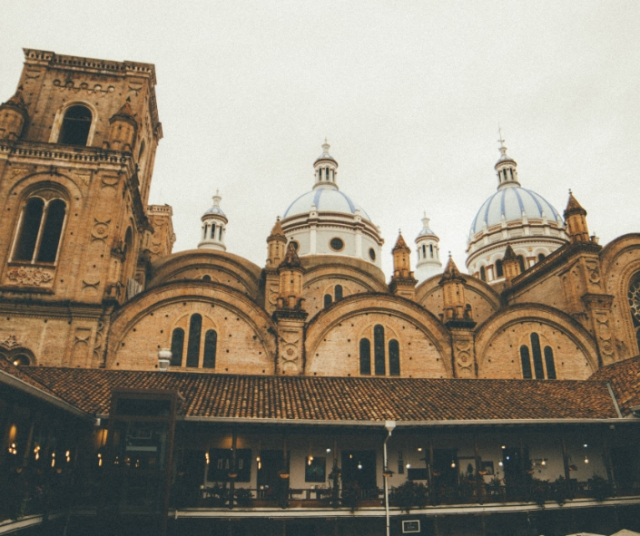Quito Foundation Day is an important celebration in Ecuador that commemorates the establishment of the city of Quito, the country's capital, more than five centuries ago. Held every December 6, this holiday is an occasion to honor the city's rich history and cultural heritage, as well as to reflect on its evolution and development over the centuries. Join us as we explore why Quito Foundation Day is celebrated in Ecuador, the history behind this holiday, the associated traditions, and the meaning it has for the inhabitants of the city and the country as a whole.
Origin and historical context of the founding of Quito.
The history of Quito dates back to pre-Columbian times, when the region was inhabited by various indigenous cultures, including the Quitu-Caras and the Puruháes. These cultures established settlements in the Quito valley, taking advantage of its fertile soil and its strategic location in the Ecuadorian Andes.
The official founding of Quito is attributed to the Spanish, who arrived in the region at the beginning of the 16th century in search of wealth and territories for the Spanish Crown. On December 6, 1534, the Spanish conquistador Sebastián de Belalcázar founded the city of Quito on the site of an ancient indigenous settlement, marking the beginning of the Spanish presence in the region.
The choice of the founding date was not a coincidence. December 6 is the day when the Catholic Church celebrates the feast of San Francisco de Quito, the patron saint of the city. This coincidence with an important religious holiday gave special meaning to the founding of Quito and helped consolidate the Spanish presence in the region.
Reasons to celebrate the founding day of Quito.
Preservation of history.
Quito Foundation Day is an opportunity to preserve and disseminate the city's history and its role in the formation of modern Ecuador. The celebration of this holiday allows us to remember the key events and figures in the history of Quito, as well as highlight the city's contribution to the development of the country as a whole.
Celebration of cultural identity.
Quito is a city rich in cultural and architectural heritage, with a unique mix of indigenous, Spanish and mestizo influences. Quito Foundation Day is an occasion to celebrate this cultural diversity and honor the traditions and customs that make the city a special and unique place in the country.
Promotion of tourism and national tourism.
The celebration of Quito Foundation Day is also an opportunity to promote tourism and national tourism in the city. The festival attracts visitors from all over the country and abroad, who come to enjoy the festivities, cultural events and tourist attractions that Quito has to offer. This contributes to boosting the local economy and promoting cultural and social exchange between different communities.
Strengthening the sense of belonging.
Quito Foundation Day is a time to strengthen the sense of belonging and civic pride among the city's inhabitants. The festival brings together people from different origins and communities around a common goal: celebrating the history and identity of Quito. This helps build a sense of community and solidarity among city residents and promote civic participation and civic engagement.
Traditions and customs of the day of the founding of Quito.
The celebration of Quito's Foundation Day is marked by a series of traditions and customs that reflect the history and culture of the city. Some of the most common practices associated with this holiday include:
Parades and cultural events.
Quito Foundation Day is an occasion to organize parades and cultural events that celebrate the history and identity of the city. These parades usually include the participation of folk groups, music bands, community organizations and schools, which parade through the streets of Quito in traditional costumes and show typical dances and music of the region.
Craft fairs and markets.
During Quito's Foundation Day, craft fairs and markets are organized in different parts of the city, where you can find a variety of local products, crafts and typical foods from the region. These fairs are an opportunity to support local artists and artisans, as well as to enjoy the rich cultural and gastronomic offer of Quito.
Sports and recreational events.
Quito Foundation Day is also a time to organize sporting and recreational events that promote well-being and physical activity among the city's inhabitants. These events can include runs, walks, sports competitions, and outdoor activities, bringing together people of all ages and abilities to celebrate the holiday together.
Religious activities.
Since the founding of Quito coincides with the feast of San Francisco de Quito, Quito Foundation Day also includes religious activities and special ceremonies in honor of the city's patron saint. These activities may include masses, processions, and other religious celebrations that reaffirm the community's faith and devotion to Saint Francis and the Virgin of Mercy, another religious figure revered in the city.
Impact and meaning of Quito's founding day.
Quito Foundation Day has a significant impact on the city and its inhabitants, as well as the country as a whole. This festival not only promotes the preservation and dissemination of Quito's history and culture, but also strengthens the sense of identity and belonging among the city's inhabitants and encourages civic participation and community commitment.
In addition, Quito Foundation Day contributes to the economic and tourism development of the city, by attracting visitors from all over the country and abroad and promoting local commerce and business activity. This helps boost the local economy and generate employment and business opportunities for the city's inhabitants.
Quito Foundation Day is a historical and cultural celebration that honors the city's rich history and heritage. Through deep-rooted traditions, cultural events and community activities, this festival reaffirms the pride and identity of the inhabitants of Quito and promotes the preservation and dissemination of its cultural and architectural heritage. It is an occasion to celebrate the city's diversity and creativity, as well as to reflect on its role in the history and development of Ecuador as a nation.
